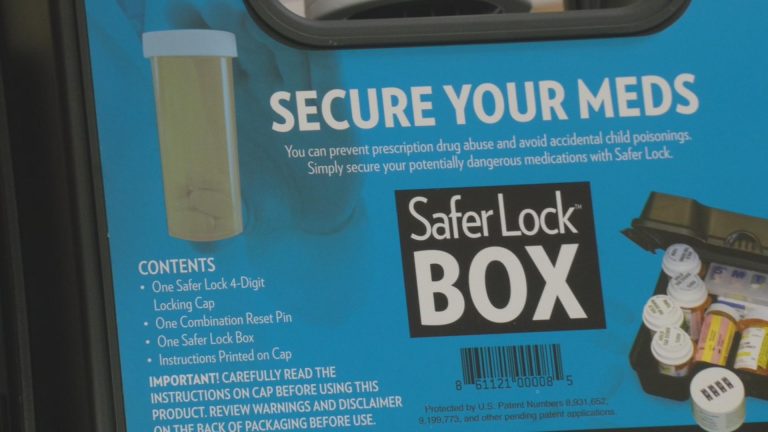
Elon Musk’s Ketamine Use Sparks Mental Health Debate | Image Source: timesofindia.indiatimes.com
LOS ANGELES, California, March 24, 2025 – Billionaire entrepreneur Elon Musk once again recorded the public’s attention – this time not for a Tesla release or a daring Mars calendar, but for his sincere admission to the use of ketamine to manage his mental health. In a deep conversation with journalist Don Lemon, Musk revealed that he was taking a small medically prescribed dose of ketamine about weekly to treat symptoms of depression. The revelation sparked public conversations not only about his personal life, but about the broader and often misunderstood role of ketamine in psychiatric treatment.
“There are times when I have some kind of negative chemical state in my brain, such as depression that I suppose, or depression that is not related to negative news, and ketamine is useful to get one out of the negative state of mind,” Musk said during the interview. It was quick to emphasize the medical legitimacy of your treatment, noting that you receive the medication by a recipe of “a true and true doctor.” According to NDTV, Musk’s approach to the use of ketamine is consistent with how the drug is increasingly being used in psychiatric medicine to treat what experts call treatment-resistant depression.
What is ketamine and why is it used in mental health?
Ketamine was originally developed in the 1960s as anaesthesia and is still used today in emergency medicine and surgical procedures. It is classified as dissociative anesthesia, which means that it can induce feelings of detachment from the environment and self. According to the Indian Express, researchers began to notice the antidepressant effects of the rapid drug action in the early 2000s, leading to a deeper clinical interest. In 2019, the FDA approved esketamine, a derived nasal spray known as Sparvate, especially for treatment-resistant depression. This was a crucial moment, emphasizing the general medical acceptance of ketamine as more than anaesthesia in the operating room.
What makes ketamine so unique in psychiatric treatment is its speed. Traditional antidepressants such as SSRI usually take weeks to start working. Ketamine, on the other hand, can produce remarkable improvements in humour within hours, making an invaluable tool for those who experience deep-rooted suicidal ideas or depressive episodes. “It works by increasing glutamate, a neurotransmitter associated with brain plasticity,” explains Dr. Shaunak Ajinkya, a psychiatrist at Kokilaben Dhirubhai Ambani Hospital in Mumbai, in her comments to the Times of India.
Is Elon Musk safe?
The answer, like many in medicine, is: it depends. When used under medical supervision and at controlled doses, ketamine can be safe and effective. “If you use too much ketamine, you can’t really do a job,” explained Musk, defending its limited use. “I have a lot of work, I usually put it in 16 hours.”
It’s a critical distinction. The use of recreational ketamine, common in nightlife scenes and often accompanied by other substances, can lead to short-term dangerous effects such as hallucinations, unconsciousness and respiratory depression. Chronic abuse can also lead to serious long-term consequences, such as cognitive deterioration and bladder damage, sometimes referred to as “titamin bladder syndrome”. According to Washington Examining, Musk’s sincerity about the limitations and necessity of his ketamine diet was an unusual but potentially influential case of high transparency in mental health.
Q Pulp: A: Understanding Ketamine’s Dispute
Why is Musk’s ketamine use making headlines?
Because Musk is a leading figure that leads to companies worth hundreds of billions, his actions go beyond his personal life. Their use of drugs, particularly controlled substances such as ketamine, raises questions about workplace leadership, decision-making and investor confidence. It also places ketamine at the centre of a cultural and political debate on mental health and drug policy.
What are the dangers of ketamine?
Short-term effects include disorientation, nausea and hallucinations. Long-term and chronic abuse can cause bladder damage, addictions and cognitive problems. When combined with alcohol or other sedatives, the risks increase considerably.
Is this treatment widely accessible?
Ketamine treatment is currently reserved for serious cases, particularly treatment-resistant depression. It is usually administered in specialized clinics under careful medical supervision. High regulatory costs and barriers mean that it is not accessible to all, which mental health advocates continue to challenge.
Can ketamine lead to addiction?
Yes. Like many psychoactive substances, ketamine has the potential for abuse. Its euphoric and dissociative effects can make it attractive outside of medical use. Therefore, clinics often limit sessions and maintain strict supervision.
Elon Musk and drug policy
In particular, Musk’s admission did not exist in the vacuum. Political commentators have resumed their use of drugs as ammunition in broader discussions about their influence on technology, the media and even politics. As the Washington examiner pointed out, Musk’s growing ties with conservative personalities and Donald Trump’s recent support put him under the fire of liberal critics. Some argue that concerns about drug use are less about public health and more about public image, an effort to discredit a powerful figure whose influence affects business and policy.
This is not Musk’s first mixture with the substance controversy. In 2018, he smoked famous marijuana during a live podcast with Joe Rogan. The incident caused tremors in the course of Tesla’s actions and led NASA to set up random tests for SpaceX employees. Musk himself said, “Happily, I don’t like to do illegal drugs. However, their open attitude towards controlled substances continues to be carefully examined.
Mental Health in the Media Management: Musk Cancella Don Lemon Deal
Interestingly, the interview in which Musk discussed his use of ketamine eventually triggered another title: Musk cancelled Don Lemon’s agreement to host a streaming program X, the platform previously known as Twitter. As reported by the Times of India, Musk accused Lemon of having approached the conversation with the same bias as in the inherited media, thus ending his trade agreement. This post-interview fall only intensified discussions on censorship, press freedom and Musk’s vision for X as a “free expression” platform.
X sailed in turbulent waters with advertisers, many of whom took money because of concerns about content moderation. Musk had already taken root in these advertisers in a strong language, but during his speech with Lemon, he softened his tone, pointing out that many had returned. Their position has remained constant: advertisers can choose where to place ads, but should not dictate broader platform policies.
A broader conversation about mental health
While titles can revolve around Musk, there is a deeper problem here, which affects millions. Depression, especially treatment-resistant depression, is a growing public health crisis. Many who suffer find little relief in traditional therapies. Thus, ketamine represents a ray of hope, albeit controversial. Its use by a person as eminent as Musk can help standardize mental health care research, but it also raises questions of privilege, access and ethical considerations of public service models by self-regulation.
There’s also Matthew Perry’s connection. After the tragic death of dear actor Friends for ketamine toxicity in 2023, the public became aware of the potential dangers of drugs. However, experts caution against painting the entire use of ketamine with the same brush. The context – clinic versus recreational, supervised versus unsupervised – matters a lot. “It’s not intrinsically dangerous,” says Dr. Ajinkya, “but like all drugs, your safety is directly related to how and why it is used
Finally, Musk’s revelation adds a personal, though controversial, face to the evolution of the mental health treatment narrative. It also pushes society to deal with a difficult question: when is drug use a problem and when is it a solution? In a culture that still struggles to balance empathy and responsibility, Musk’s history is unlikely to offer easy answers, but it offers an essential starting point for a larger and much needed conversation.
Now, Musk continues to operate Tesla, SpaceX, Neuralink and X with its typical intensity, recording 16 hours of work and playing more responsibilities than most. Whether ketamine is a crutch, a cure or something between, only time and transparency will tell.






